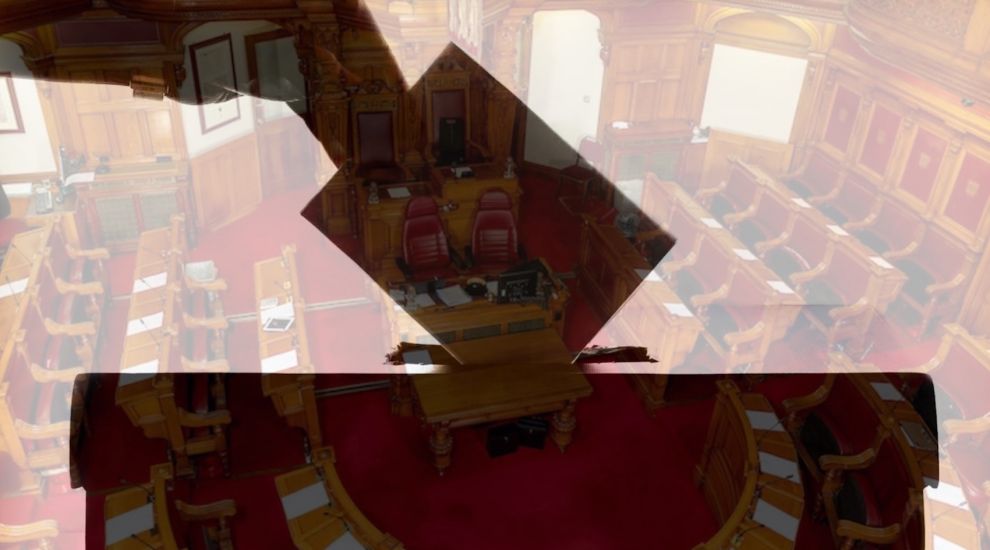


This week, the Privileges and Procedures Committee is seeking to formalise the States Assembly’s decision to create voting districts and remove Senators from the States Assembly.
The PPC has claimed its proposition would improve democracy. Senator Ian Gorst is seeking to have the proposition amended to retain Senators.
Rather than seek islanders’ views on this constitutional matter in an island-wide referendum, the States Assembly has decided it should resolve the matter as representative body.
How well has the States Assembly defended democracy so far?

Pictured: "Senator Ian Gorst is seeking to have the proposition amended to retain Senators."
To support its new proposition, the PPC has said removing Senators respects the decision of voters in the 2013 referendum.
That would make a change, then. Do you remember the 2013 referendum? The island's voting public supported retaining Constables in the States Assembly. Shock, horror. It had rejected a recommendation in the Clothier report. The States Assembly refused to believe voters had, so voters had to confirm their position in another referendum the following year.
The UK Commonwealth Parliamentary Association’s Election Observer Mission recommended in 2018 that the States Assembly respect the results of the 2013 referendum. The very next year, the PPC sought to remove voting rights from the Constables and make all voting States Members Deputies, arguing its proposition would respect... the Clothier recommendations.
Now, the PPC seems to have come back to the fold. Only, has it? Removing Senators was another Clothier recommendation. How reliable was the 2013 referendum in demonstrating public support for it when it handcuffed voters in their choices?
Despite stating its belief that having three types of States Members is too ‘complex’ for the island's voters, the Electoral Commission saw no problem with presenting three asymmetrical questions to the electorate.
And, despite the Electoral Commission having acknowledged the strength of public support for retaining Senators (as well as having fewer States Members), the only option that enabled Senators to be kept in the States Assembly supported no changes being made to the constitution whatsoever.
This would have forced voters wishing to retain Senators to endorse unfairly sized electoral districts and having a larger number of States Members.
Only half of the Electoral Commission’s six members were States Members (and just one, a Senator). A Deputy-dominated States Assembly accepted the Electoral Commission’s recommendations for the referendum questions.
The Electoral Commission had justified removing Senators by citing the ‘experience in Guernsey’ (which subsequently changed its constitution to eliminate Deputies). It also argued Jersey’s public and media perceived Senators as having greater constitutional significance despite all States Members having equal votes.

Pictured: "Not needing to sell themselves island-wide, candidates for Deputy generally incur far less in the way of campaign costs than Senatorial candidates, while becoming elected with fewer votes."
Is public and media perception truly that irrelevant to democracy? If the PPC’s proposition is passed unamended, the number of States Members for whom an islander can vote will reduce from ten to five or less (the exact number will depend on the voting district and the extent to which seats are contested or not).
Many islanders do not realise a large proportion of electoral campaigning is privately funded. Not needing to sell themselves island-wide, candidates for Deputy generally incur far less in the way of campaign costs than Senatorial candidates, while becoming elected with fewer votes. This does not stop them being paid the same as Senators (nearly £50,000 a year).
Some Deputies complained about bias when landlord States Members voted on a proposition affecting landlords. While voters island-wide face disenfranchisement from the PPC’s proposition, how many Deputies will refrain from voting on it?
Unlike the corporate rules that govern many islanders in order to avoid bias or perceptions of bias, the States Assembly’s own Code of Conduct does not prevent States Members from voting on matters in which they have a personal interest.
Deputies already dominate the States Assembly and the PPC. Only 7 out of the island's 29 Deputies rejected the PPC’s initial proposal on the grounds of public interest. If voters perceive Deputies to have manipulated democracy out of self-interest, does history suggest that would matter to most States Members?
It may matter to you.